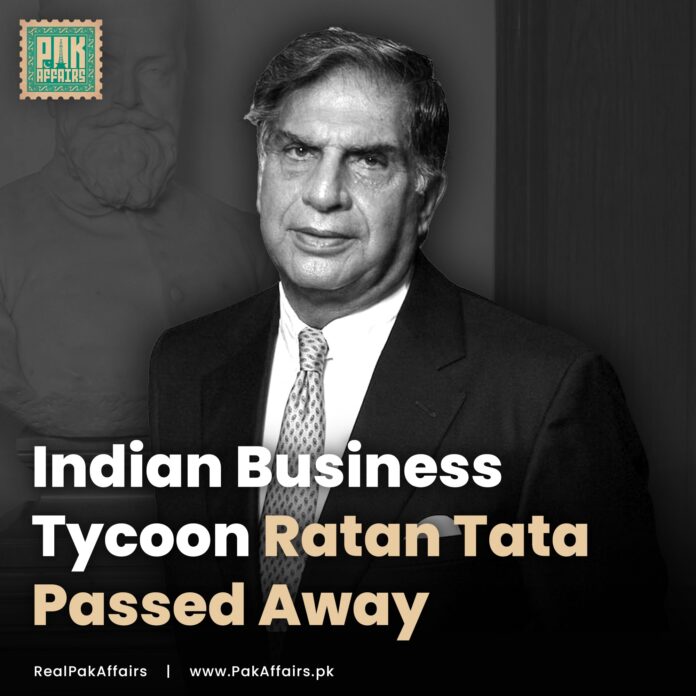Ratan Tata, the former chairman of Tata Group who transformed the Indian conglomerate into a global powerhouse through high-profile acquisitions, has passed away at the age of 86. The Tata Group announced his death in a statement on Wednesday. Tata had been receiving intensive care at a hospital in Mumbai.
Ratan Tata, who led the Tata Group for over two decades, was instrumental in shaping the conglomerate’s global presence. After earning a degree in architecture from Cornell University, Tata returned to India in 1962 to work in the family business, which had been founded by his great-grandfather nearly a century earlier. He worked in various Tata companies, including Telco (now Tata Motors) and Tata Steel, where he left a significant mark by turning around the fortunes of National Radio & Electronics Company.
In 1991, Ratan Tata took over as chairman of the Tata Group, succeeding his uncle J.R.D. Tata. His leadership came at a pivotal moment as India embarked on economic reforms that opened its markets to global competition. Under his direction, Tata Group expanded beyond Indian borders through a series of strategic acquisitions. These included the purchase of British tea company Tetley in 2000, Anglo-Dutch steelmaker Corus in 2007, and luxury car brands Jaguar and Land Rover from Ford in 2008.
Tata also spearheaded several iconic projects within Tata Motors, including the development of the Indica, India’s first car designed and manufactured domestically, and the Nano, intended to be the world’s cheapest car. While the Indica was a commercial success, the Nano struggled due to safety concerns and poor marketing, ultimately being discontinued.
A licensed pilot and avid philanthropist, Ratan Tata never married and maintained a modest lifestyle. His leadership was marked by his quiet demeanor and dedication to philanthropy, with nearly two-thirds of Tata Sons’ share capital held by charitable trusts. His tenure was not without controversy, including a high-profile dispute with Cyrus Mistry, who was removed as chairman of Tata Sons in 2016.
After retiring from Tata Group, Ratan Tata became a prominent investor in Indian startups, supporting companies like Paytm, Ola Electric, and Urban Company. He was honored with the Padma Vibhushan, India’s second-highest civilian award, in 2008 for his exceptional contributions to trade and industry. Ratan Tata’s legacy as a visionary leader and his contributions to India’s business landscape will be remembered for generations to come.




